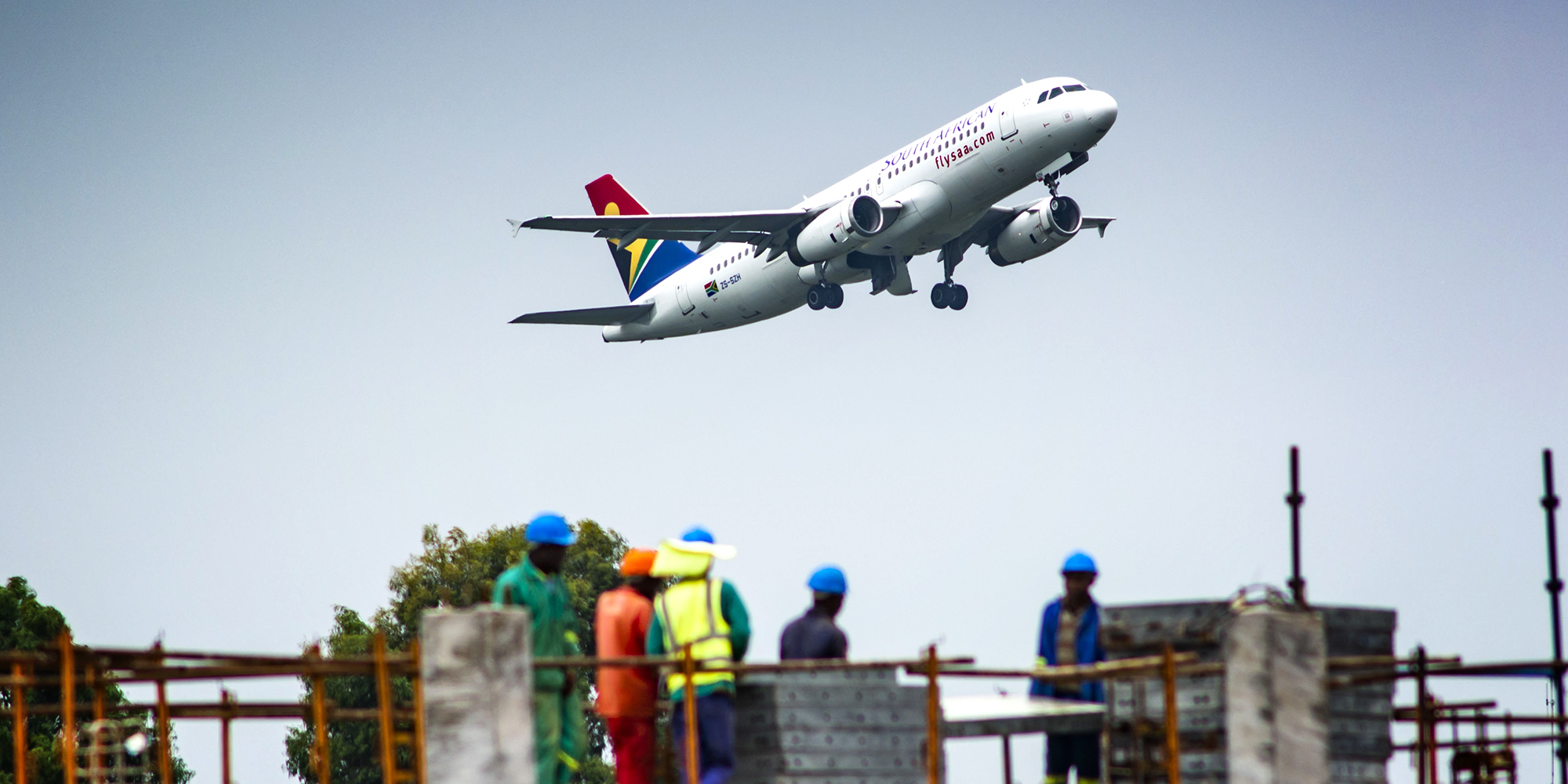SAA pilots started a “work-to-rule” industrial action yesterday, marking a significant escalation in the ongoing dispute over wages and working conditions that has simmered since May last year.
The South African Airways Pilots Association (Saapa) and the National Transport Movement (NTM) Pilot Forum jointly announced the action, which comes after months of increasingly tense negotiations with the airline’s management.
Work-to-rule actions typically involve employees performing their duties exactly as specified in their contracts and safety regulations, without any additional flexibility or overtime — a move that can significantly affect airline operations without constituting a full strike.
A clash of perspectives
SAA management, led by group chief executive Professor John Lamola, has expressed “deep regret” over the pilots’ decision, particularly considering what he described as a “comprehensive and favourable final offer” extended to pilots earlier this month.
“We consider our offer to the pilots both fair and generous, especially given the financial challenges the airline continues to face,” Lamola said in a media release.
The airline’s final offer, presented on Wednesday, 5 March 2025, included a three-year salary increase agreement with incremental increases of 3% annually from April 2025 through April 2027, with projected CPI adjustments to be added.
The offer, noted in a release shared with Daily Maverick, also introduced a longevity salary progression model, agreements on duty hours, additional leave days, increased rebate travel benefits, and pilot participation in rostering technology specifications.
Rejection balancing act
However, pilot representatives have clearly found the offer insufficient. The industrial action follows a journey of increasingly strained negotiations that began in May 2024, when pilots initially demanded a 30% salary increase, later revised to 15.7%.
The industrial action comes at a particularly sensitive time for SAA, which had been showing signs of recovery after years of financial turmoil.
In November 2024, the airline reported its first net profit since 2012, with the company and its subsidiaries posting R252-million in the black for the 2022/23 financial year — a remarkable turnaround from the combined R23.5-billion in losses over the previous four years.
The airline’s operational performance had been steadily improving, with total revenue increasing by 183% from R2-billion to R5.7-billion year-on-year.
SAA had successfully transformed its airline operations from a negative earnings position of R1-billion to a positive R277-million in earnings before interest, taxes, depreciation, and amortisation.
This nascent financial stability now faces potential disruption as the current labour dispute threatens to undermine the progress made during the carrier’s hard-won recovery.
A flight path to recovery
The dispute highlights the challenging balancing act facing SAA: addressing employee expectations while ensuring the airline’s financial sustainability.
SAA implemented an average 7.2% salary increase and increased medical aid subsidy in November 2024, which pilots rejected, leading to a previous strike in December.
While both parties have expressed commitment to continuing negotiations, the immediate concern falls on passengers and SAA’s operations.
The airline has assured the public that it has “implemented strong contingency measures to minimise the impact of this industrial action” and remains “committed to ensuring uninterrupted service and real-time updates on flight statuses for passengers and partners alike”.
“We are fully dedicated to reaching an agreement,” Lamola assured stakeholders, while pilot representatives have similarly expressed a desire for resolution rather than prolonged conflict. DM





